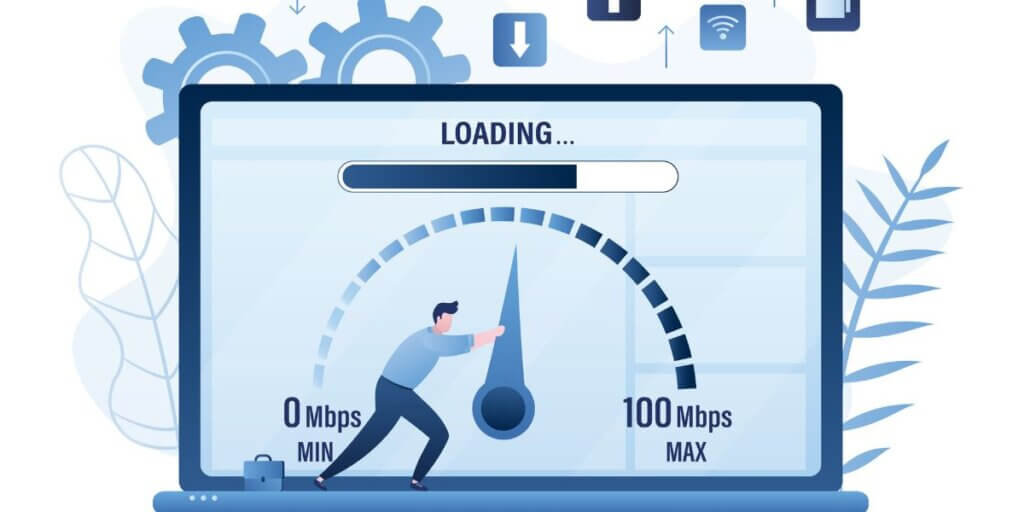Lower your internet bill
61% of people overpay for their internet.
Are you one of them?
Unlock exclusive offers in your area!
Call now
[tel]Enter zip code
1 Star is Poor & 5 Stars is Excellent.
* Required

Written by Rosslyn Elliott - Pub. Oct 02, 2024 / Updated Oct 02, 2024
Table of Contents
Are you happy with your Internet service?

About the author
Did your internet provider promise you fast speeds, but now your connection seems slow or glitchy? Or maybe you haven’t seen obvious problems, but you still want to know the actual internet speed you’re getting for your money.
How do you know if your internet connection works at the speed you’re paying for? This guide will walk you through testing your internet speed, understanding the results, and ensuring you have the speed you need.
There’s a reason internet speed comes up in every single ad you see from an internet provider. Your speed determines whether you can have a smooth experience with your online activities. If your speed isn’t fast enough, you can have problems with streaming, gaming, remote work, or using several devices at once [1].
Streaming services like Netflix and Hulu require different speeds for different quality levels. For example, Netflix recommends at least 5 Mbps for HD streaming and 25 Mbps for 4K Ultra HD [2]. Those speeds are for each device, so you need more speed for multiple devices on your network [3]. If your connection is too slow, you’ll face endless buffering and poor video quality.
Gamers need fast, stable connections to enjoy lag-free gameplay. Slow speeds can lead to frustrating delays and disconnections, especially in fast-paced games like Fortnite or Overwatch.

With more people working remotely, a fast internet connection is vital for video calls, file transfers, and accessing cloud-based applications. Slow speeds can hamper productivity and lead to communication issues.
Remember, your internet speed is shared across all connected devices in your home. The more devices using the internet simultaneously, the faster connection you’ll need to maintain smooth performance for everyone.
To effectively test your internet speed, you need to understand what the numbers mean.
Download speed measures how quickly data travels from the internet to your device. It’s crucial for activities like streaming videos, downloading files, and browsing websites.
Upload speed determines how fast you can send data from your device to the internet. It’s important for activities like video calls, uploading files to cloud storage, or live streaming.
Measured in milliseconds (ms), latency is the time it takes for a signal to travel from your device to the internet and back. Lower latency means a more responsive connection, which is especially important for online gaming and video calls.
Now that you understand the basics, you can test your internet speed:
For the most accurate results:
We have a speed test tool that will show you your upload speed, download speed, and latency.
This tool will test your current internet connection with the click of a button. Use the speed test to discover your real internet speed.
Click the “Go" or “Start" button on the test. The test typically takes less than a minute to complete.
The test will display your download and upload speeds in Mbps (megabits per second), as well as your ping. Compare these results to the speeds promised by your internet service provider (ISP).
Internet speeds can fluctuate throughout the day. For a more accurate picture, run tests at different times and calculate the average.

The ideal internet speed depends on your household’s needs:
The Federal Communications Commission (FCC) defines broadband internet as having a minimum of 100 Mbps download and 20 Mbps upload speeds.
If your speed test results are consistently lower than the speed you’re paying for, you have options. Try these steps:
While Wi-Fi is convenient, a wired Ethernet connection often provides faster and more stable speeds.
Outdated modems and routers can bottleneck your connection. Make sure your equipment can handle the speeds you’re paying for.
For larger homes, a mesh network system can provide better coverage and consistent speeds throughout your space.
Use apps like WiFi Analyzer to check which wireless channels are less crowded in your area and adjust your router settings accordingly [5].
If you’ve tried all the troubleshooting steps and your speeds are still significantly lower than advertised, it’s time to contact your internet service provider. They may need to:
Remember, you’re paying for a service, and you deserve to get what you’re paying for. Don’t hesitate to advocate for yourself if you’re not getting the speeds you were promised.

If you are thinking of changing internet providers, enter your zip code for a complete list of providers and plans in your area.
Factors include the number of connected devices, time of day, outdated equipment, signal interference, and your internet service provider’s network conditions.
A good internet speed depends on your needs. The FCC defines broadband as minimum 100 Mbps download and 20 Mbps upload [6]. For basic browsing, 5-10 Mbps is enough, while 4K streaming and gaming may require 40-100 Mbps or more.
Potential reasons for a slow connection include network congestion, outdated equipment, signal interference, or issues with your ISP’s service. Try troubleshooting steps like restarting your router or contacting your ISP.
Try restarting your modem and router, using a wired connection, upgrading your equipment, or considering a mesh network for better coverage.
If troubleshooting doesn’t help, contact your ISP. They may need to reset your connection, send a technician, or upgrade your plan to meet your needs.
Fiber internet technology will give you the fastest upload and download speeds, plus low latency.
[1] PCMag.com. “How to Check Your Internet Speed."
[2] Wired.com. “How to Test Wi-Fi Speed."
[3] CNBC.com. “How to Check Your Internet Speed."
[4] PopularMechanics.com. “Test Your Wi-Fi Speed."

About the author
Congratulations, you qualify for deals on internet plans.
Speak with our specialists to access all local discounts and limited time offers in your area.
[tel]61% of people overpay for their internet.
Are you one of them?
Unlock exclusive offers in your area!
Call now
[tel]Enter zip code